After my quick trip to the UK last month, I’m back in Belgrade again. We made a few stops on our drive back across Europe, but it’s really not a good time to be travelling.
It was, nevertheless, a great time to spend a couple of hours strolling around Venice with no crowds. Here’s the Piazza San Marco as you’ve never seen it on any other August weekend:
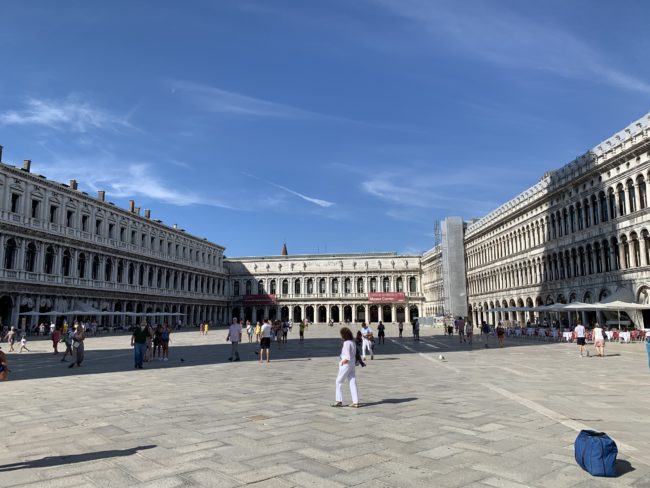
Overall, though, I’m glad to be back in one place again. I enjoyed some good non-fiction reading in August, from a history of Black British people to a theory of why the US media makes people hate each other. Here’s my roundup of the books I read in August:
Black and British: A Forgotten History by David Olusoga
What I loved about this book was the way it broadened the terrain of Black British history, tracing the presence of people of African ancestry in Britain back to Roman times and also expanding beyond the British Isles to include British colonial activities in Africa and the Caribbean. The downside is that it skipped quite quickly through the more recent history, but I guess that’s because it’s been covered more extensively elsewhere. Black and British shines a light on a history that I would argue has not been “forgotten”, but deliberately obscured.
A Journal of the Plague Year by Daniel Defoe
Regular readers will know I’ve been working my way slowly through some pandemic literature this year. Daniel Defoe’s account has often been treated as memoir, but the dates make that impossible. It seems to be based on his uncle’s diaries, but the extent to which it’s adapted or fictionalised is unknown. Still, it rang true as an account of the London plague of 1665, and many of the events of that year—denial, blame, unequal consequences for rich and poor, inadequate government measures, bizarre rumours—will be familiar to followers of COVID-19.
Who Do You Serve, Who Do You Protect? edited by Maya Shenwar, Joe Macare & Alana Yu-lan Price
Another theme of my reading this year has been policing. The depressing thing is that most of these books were written long before the current protest movement, and yet nothing has changed. The catalogue of police violence against Black people continues amid the same half-hearted promises about reform and improvements. Given yesterday’s news about white supremacist infiltration of US police forces, perhaps it’s not surprising. That’s why people are in the streets. Why should they have any trust in a process that has repeatedly failed them?
Hate Inc.: Why Today’s Media Makes Us Despise One Another by Matt Taibbi
Matt Taibbi delivers an insider view of US political journalism, showing us why reasoned debate is not on the menu. Essentially, conflict is more profitable, even if it means reducing journalism to divisive rhetoric and partisanship. I liked the way he linked sports journalism to political journalism, showing how the same techniques have infiltrated political coverage, so that it’s more about identifying with your ‘team’ and demonising your rivals than about reaching the truth.
The Verdict
I think the main verdict from this month’s reading is that I’m ready for a good novel. These books were all good, but all quite hard to stomach—not because of their writing, but because of the horrible truths they uncover.
Overall, my biggest recommendation from the month is Black and British. The stories in that book were completely absent from my history degree programme, and it’s a valuable corrective to the skewed vision of British history we often get.
How was your reading this month? Let me know your recommendations or reactions in the comments!
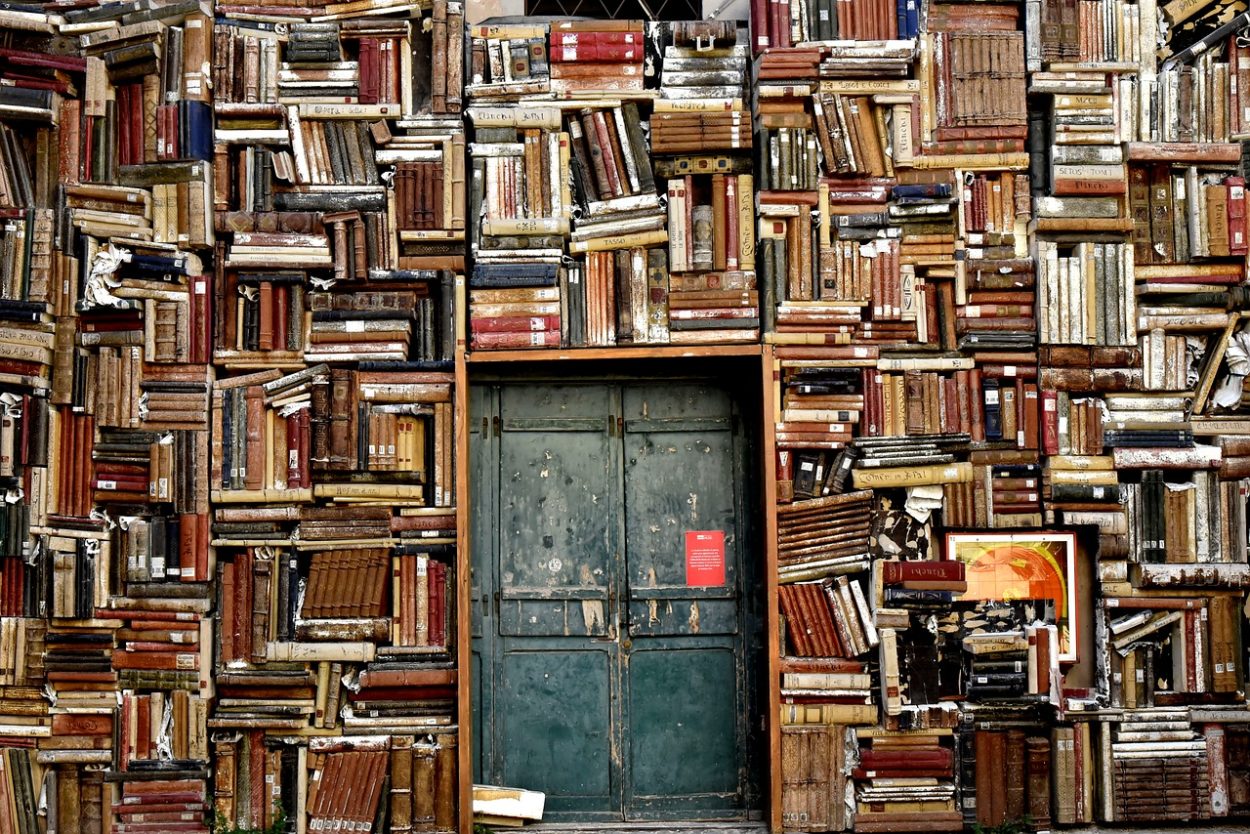
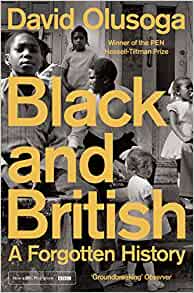
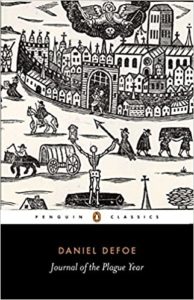
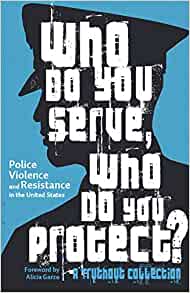
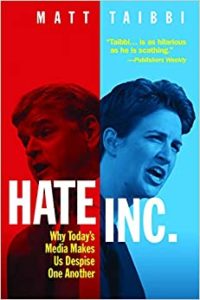
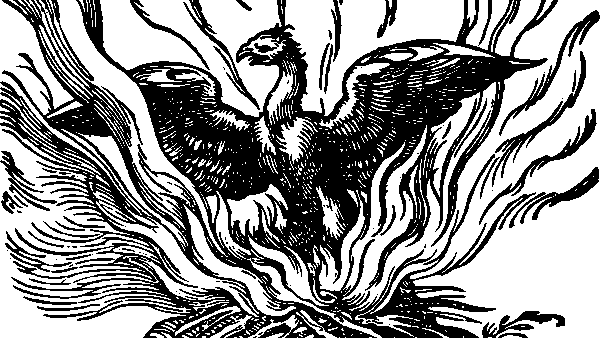

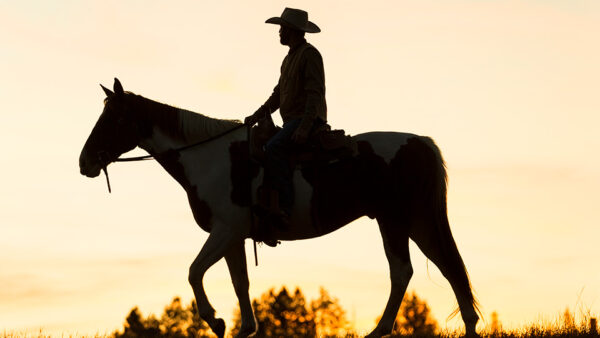
There are 14 comments
Black and British sounds excellent and wider in scope than I suspected…
Re: the Defoe, you may be aware of this already, but if not…the Backlisted team covered it on their podcast a year or so ago. There’s a link here if you (or other readers) are interested:
https://www.backlisted.fm/episodes/91-daniel-defoe-a-journal-of-the-plague-year
Hi Jacqui, Thanks for the link! I didn’t know about that podcast, so I’ll have a listen.
I’ve read some pandemic fiction this summer. I found The Last Town on Earth (about the Spanish flu) to mirror many of the things we are currently experiencing. The book about journalism looks interesting.
Ah, that one sounds interesting, Donna. I read another Spanish flu novel recently, They Came Like Swallows by William Maxwell, and could also see some parallels with Covid-19.
How brave you are, I don’t think I could stomach so many non-fiction books in a row.
The book about Black history and the one about journalism sound good. I wonder if US and UK politics are in the same bad shape because the countries have popular questionable papers or TV channels aimed at making money and not at spreading verified news.
Yes, I think that’s certainly a big part of the explanation, Emma. I also think it’s about the US and UK being such eager pioneers in this grand experiment of destroying social programmes and trusting the magic of the market to solve every conceivable human problem. They’ve gone futher than most countries in heightening inequality and shredding the safety net, so they have a lot of very justifiably angry people. A functional media would have held the plutocrats to account, but a dysfunctional, profit-focused media that’s actually run by those same plutocrats has instead deflected the upsurge of anger onto immigrants, Muslims, etc. Hence Trump, Johnson, Brexit. It’s a toxic situation that has been a long time in the making and will not be easy to unwind. Glad I’m in Serbia 😉
How amazing to be able to see Venice like that, although it was have been a bit concerning.
Hi Marg, Yes, you’ve hit the nail on the head. It was wonderful and concerning at the same time. It was tough to enjoy strolling around a beautiful city in the middle of a deadly pandemic. We kept it very brief, stayed out of most shops and cafes, wore masks, etc. I don’t think I’d recommend it, exactly, but we were definitely lucky to have the place almost to ourselves! Thanks for stopping by 🙂
The Piazza looks lovely and very quiet!
It was wonderful, Heather! But also there’s a reason why it was quiet, of course. It was a strange experience travelling in the middle of a pandemic, and it was tough to relax and enjoy strolling around a city. But we were lucky to have seen it so quiet – it’s usually so crowded there, especially on summer weekends!
What an inspiring (and challenging) set of books in a hot summer month! They all sound good to me.
My August has been exceptionally book-busy. I’ve been enjoying my own little projects and then the public library reopened, so I’ve had a fresh supply of poetry and essays and other shorter forms that I don’t have access to on my own shelves, and that’s boosted my August page count from hefty to nearly incredible!
On your pet-project, do you know about Robyn Maynard’s Policing Black Lives: State Violence in Canada from Slavery to the Present (2017)? Also, Desmond Cole’s The Skin We’re In (2020) (the genesis of which was a series of articles about his personal experiences with the Toronto Police Force? It might be surprising how much alignment there is with the American experience (as many people elsewhere seem to think that the situation in Canada is “different”, “better”).
Glad to hear that your library is open again! I remember that you were a regular patron before lockdown, so it must have been hard to do without it. And thanks for the recommendations! I didn’t know about those, but they sound fascinating. I’ve marked them to read. Wouldn’t be a BIP comment without a couple of additions to my TBR list 😉
Wow, some heavy reading you have been doing. I hope by now you are deep into a page turning kind of novel and having a little fun. Glad you were able to travel. Stay safe!
Yeah, I started reading a good novel, but it turned out to be a dystopia. Can’t catch a break at the moment 😉 Thanks, Stefanie, and you stay safe over there too!